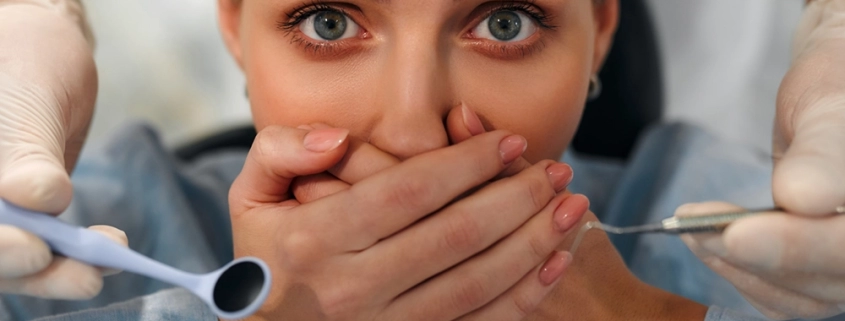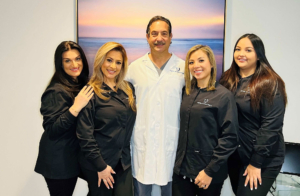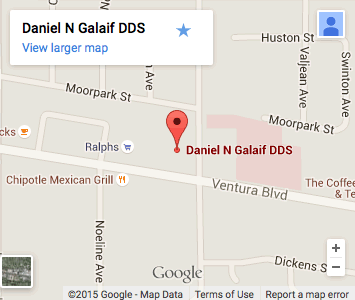Is Bad Breath an Issue for You?
Halitosis is the medical term for bad breath, which can be embarrassing and may cause anxiety. Everyone gets bad breath from time to time — especially after eating garlic, onions or other strong foods. However, Chronic Halitosis doesn’t go away, and could indicate an oral health issue or a condition that’s affecting another part of your body. Halitosis may be a symptom of many different conditions, a warning message from your body. Finding the root cause of Halitosis is the first step in treating the problem.
As consumers we are constantly bombarded with products and marketing for gum, mints, mouthwashes and other products designed to counteract our bad breath. But most of these products are only temporary measures, because they don’t address the cause of the problem. Mints and gum do little to mask the powerful stench of garlic, onions, or fish. Drinking plenty of water will wash away some odor, but Volatile Sulfur Compounds, or VFCs, are a common cause of bad breath. VFCs are the natural byproduct of bacteria, and bacterial overgrowth leads to foul mouth odor.
You should be able to improve bad breath with consistent proper dental hygiene. If simple self-care techniques don’t solve the problem make an appointment to see Dr. Galaif, to be sure a more serious condition isn’t causing your bad breath.
Symptoms
Bad breath odors vary, depending on the source and/or the underlying cause. Some people worry a lot about their breath, even though they have little or no mouth odor, while others may have extreme bad breath and not even know it. Because it’s difficult to assess how your own breath smells, you can ask a close friend or relative to confirm bad breath questions.
Potential Causes
The most common cause of Halitosis is poor oral hygiene. Without proper oral hygiene — which includes brushing, flossing and routine dental cleanings, harmful bacteria invade your mouth and can multiply out of control. This may lead to a variety of oral health issues such as Halitosis, cavities and gum disease.
While poor oral hygiene is the most common cause of Halitosis, it is not the only one. There are several other conditions that can cause bad breath, including:
- Dry Mouth: saliva helps wash your mouth, so if your body isn’t making enough saliva it can lead to Halitosis. Smoking can cause Dry Mouth, and it also increases your risk for gum disease. Certain medications may also lead to Dry Mouth.
- Infections in your Nose, Throat or Lungs: People with pneumonia, for example, cough up liquid that smells bad. Seasonal Allergies and Postnasal Drip may also cause Halitosis.
- Head and Neck Cancers: Symptoms of oral or oropharyngeal cancer (your oropharynx is between your nose and mouth) include sores that don’t heal, mouth pain, difficulty swallowing, a lump in your neck and unexplained weight loss.
- Gastroesophageal Reflux Disease (GERD): Commonly called “Acid Reflux,” a digestive disorder in which stomach acid or fluid leaks back into your esophagus, the tube that takes food from your mouth to your stomach.
- Tonsil Stones: When food gets stuck in your tonsils (located in the back of your throat), it sometimes hardens into calcium deposits called Tonsil Stones or tonsilloliths.
- Gum Disease: Gingivitis is an inflammation of your gums that can cause redness, swelling and bleeding. It’s caused by plaque, a sticky film that builds up on your teeth and can be removed by brushing and flossing. Untreated Gingivitis can lead to Periodontitis, which damages gum tissue and can lead to tooth and bone loss around your teeth. Trench Mouth is an advanced form of gum disease that can involve intense pain, bleeding, fever and fatigue. (It’s called “Trench Mouth” because it was a common illness for soldiers in the trenches during World War I).
- Diabetes: People with Diabetes have an increased risk of gum disease, which can make it harder to manage Diabetes because it may increase blood sugar.
- Liver Disease or Kidney Disease: When your liver and kidneys are working properly, they filter toxins out of your body. If not, these toxic substances aren’t being cleared out, which can result in Halitosis.
- Sjögren’s Syndrome: This autoimmune disease can lead to muscle pain, dry eyes, dry skin and dry mouth (often linked to Halitosis).
Proper Oral Hygiene is the best way to keep your breath smelling clean and fresh. Here are some general guidelines:
- Brush twice a day, for at least two minutes at a time, and floss at least once every day. Remember to clean your tongue with your brush or a tongue scraper, which you should be able to find in the dental care products aisle of your local supermarket. The tongue’s surface is covered in tiny bumps called Papilla (where bacteria accumulate). This twice-daily practice removes harmful pathogens, including those that cause gum disease, cavities, tooth infections, and bad breath.
- Use an antibacterial, therapeutic mouthwash regularly. Look for a mouthwash with the ADA Seal of approval.
- See Dr. Galaif regularly, for checkups and a professional cleaning. For some people, this may be every six months and some patients may need more frequent visits to keep your oral health in check. In contrast to your at-home brushing and flossing, professional dental cleanings remove calculus between teeth, at the gum line, and beyond if necessary.
- Drink a lot of water to help prevent dry mouth.
- Boost the production of saliva by using sugar-free chewing gum, sucking on sugar-free candy or eating healthy foods that require a lot of chewing. Dr. Galaif might recommend or prescribe products that can produce artificial saliva or help your body produce saliva.
- Avoid caffeine and tobacco products because they can dry out your mouth, along with excessive alcohol use. If you’re considering making a positive change, you might explore options like home alcohol detox to help you on your journey. For more information, check out this site at www.anormed.com.
If you suffer from chronic Halitosis on a regular basis, don’t be embarrassed! Take the necessary steps for oral hygiene, and give us a call at (818) 789-6789 to make an appointment for the highest quality dental care.
You can also visit the appointment page on our Web site:





